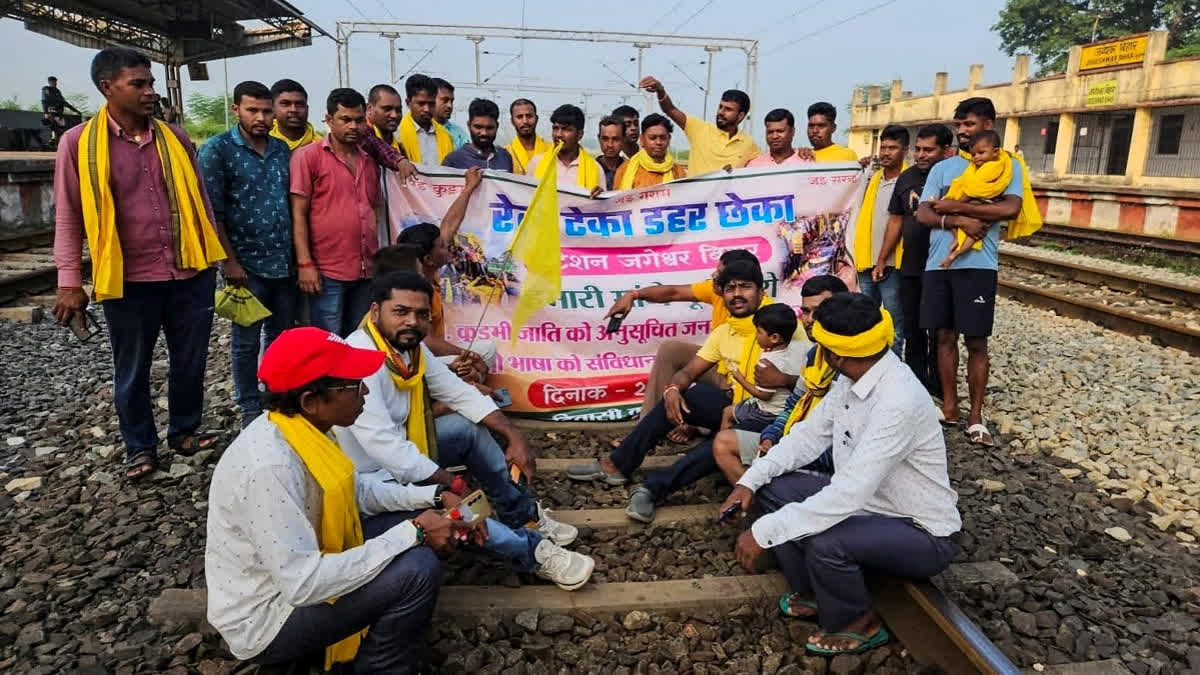Kurmi Community

- 22 Sep 2025
In News:
Defying prohibitory orders, members of the Kurmi community in Jharkhand launched a rail blockade across several stations to demand Scheduled Tribe (ST) status and the inclusion of the Kurmali language in the Eighth Schedule of the Constitution. The agitation, organized under the banner of the Adivasi KurmiSamaj (AKS), disrupted train services across the South Eastern and East Central Railway divisions.
About the Kurmi Community
- Origins and Identity:The Kurmis (also known as Kunbi in some regions) are traditionally an agricultural community, predominantly Hindu, found across eastern Uttar Pradesh, southern Awadh, Bihar, Jharkhand, and parts of Odisha.The name “Kurmi” is derived from the Sanskrit word “Krishi” (agriculture), symbolizing their deep connection with farming.
- Historical Background:Historically, Kurmis are believed to be descendants of Kshatriya warriors who took to agriculture. Renowned for their hard work, soil management, and egalitarian culture, the community was lauded by both Mughal and British administrators for its agrarian contributions.
- Social Status:Currently, Kurmis are classified as Other Backward Class (OBC) in most Indian states. However, the community contends that their socio-cultural roots align more closely with tribal heritage, warranting ST recognition.
- Sub-Groups and Culture:The community is divided into several gotras (clans), including Chandel, Chauhan, Solanki, Tomar, Baghel, and Sengar. They are known for maintaining strong community networks and gender-inclusive social practices.
About the Kurmali Language
- Linguistic Affiliation:Kurmali belongs to the Indo-Aryan language family and is primarily spoken in Jharkhand, Bihar, and Odisha.
- Cultural Significance:It serves as a marker of Kurmi identity and is used in folk traditions, oral histories, and local communication.
- Demand for Recognition:Inclusion in the Eighth Schedule would ensure state-supported promotion, education, and preservation of the language, similar to other recognized regional languages.
Government Response and Implications
The Jharkhand administration has maintained a cautious approach, emphasizing the need for maintaining law and order while acknowledging the sensitivity of the community’s demands.The demand for ST status involves constitutional and demographic considerations, requiring evaluation by the Ministry of Tribal Affairs and approval by Parliament under Article 342 of the Constitution.
